Self-learning can be difficult. Not to mention, to self learn data science.
How many times have you decided to learn something, then found yourself not following through after just a week or two?
The bad news is that the growing demands of the digitized world do not wait. This is why more people are moving to self-learning – while holding a full-time job.
Natalie Kwok took self-learning to the next level, where she studied her masters in computer science, picked up three programming languages, runs a business, Kopara – while holding a job as a business insights manager.
We spoke to Natalie to learn more about her and how she was able to develop a superhuman-like drive for continuous self-learning.
2 Ways to Self Learn Data Science
By the year 2022, the top 10 most in-demand jobs will be dominated by technology-based careers, with data scientists and AI specialists in the top spot.
This means, with the push of COVID-19 this year, we are moving into a new decade of digitization and technology. This is why more university students are choosing to pursue computer science as their choice of study.
However, many people like yourself may not have gotten the opportunity to study computer science during their university years. Even if you do plan to return, the timing right now may not be ideal.

But you don’t need to go to an educational institution to get a Masters in data science – nor do you need Masters to get a job in data science.
Many working adults today are self-learning basic data science skills to adapt to these changes, and there are two ways you can do it.
1 – Workshops and Online Classes
Rather than going to an institutionalized schooling system, there are plenty of data science workshops and online courses you can take outside your office hours to self learn data science.
Usually, online classes require long classes which can last between a day to a week. But they are densely packed with the foundations and insights you need to get started on data science. They are also purposely constructed for you to apply in your work life.
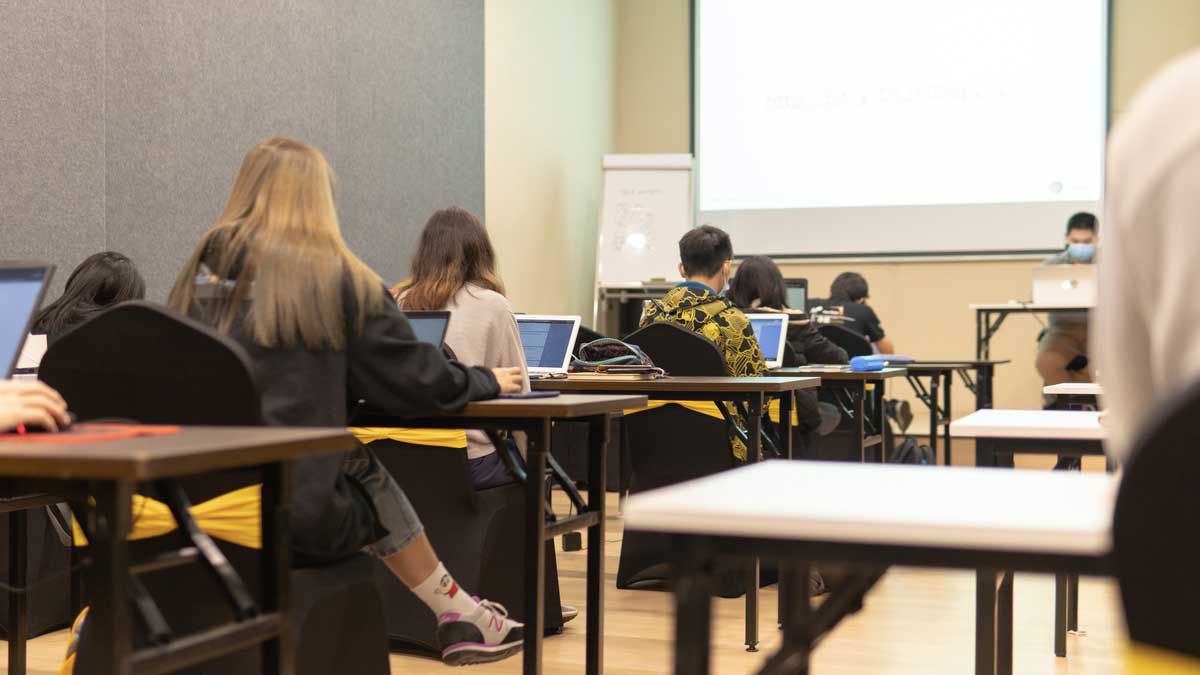
There are also some university courses that offer part-time study for full working adults. Natalie is currently taking a part-time university course for her masters in data science while she is working.
She also first picked up R through an online class and attended one of our Python classes.
With a proper online class or workshop, you will get:
- Guidance and clarification from an experienced teacher.
- A structured, approved syllabus that covers the basics of data science.
- Regular interactions between your teacher and students about the topic.
However, when taking online classes, you may experience difficulties such as:
- A rush of information that can be hard to keep up.
- Long committed hours of class time.
If you are someone who will require a little more guidance in your studies, then online classes will be best suited for you. If you are currently looking for a data science class, you can check out our data science course right here.
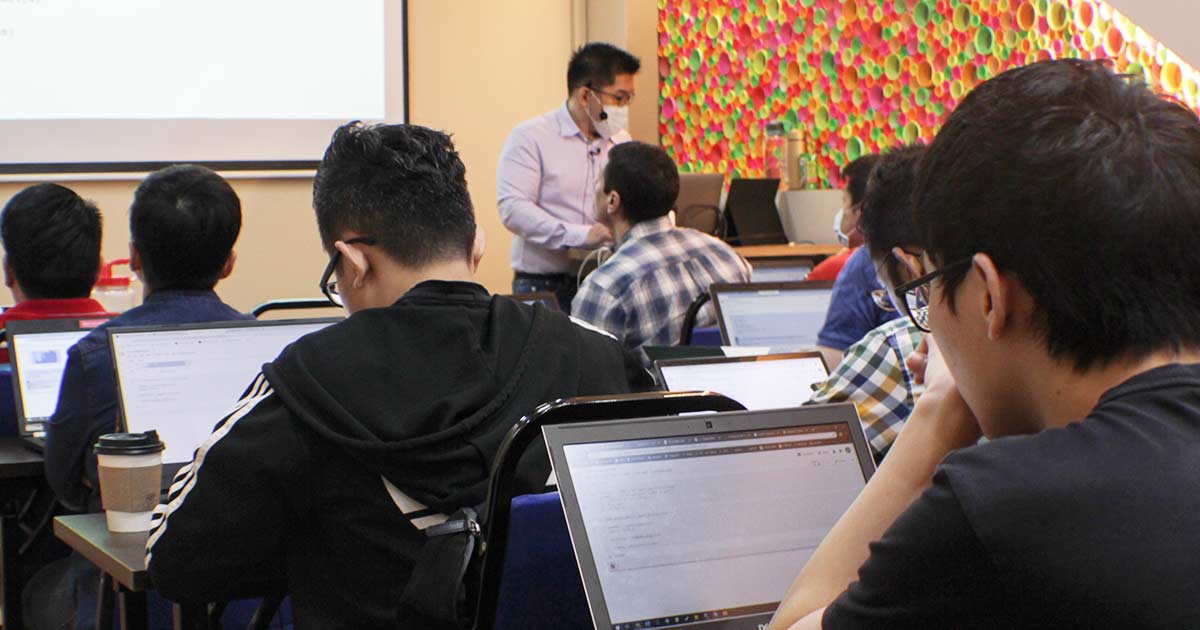
We also provide personal mentoring for those who would like to continue practising their skills beyond our classes.
2 – Independent Study
If you feel confident in taking charge of your own studies, then you don’t necessarily need a teacher to teach you. You can be your own teacher and self learn data science.
There are many helpful resources online that will enable you to learn any programming language on your own. This can come in the form of video tutorials, e-books, forum communities, and self-study online courses.
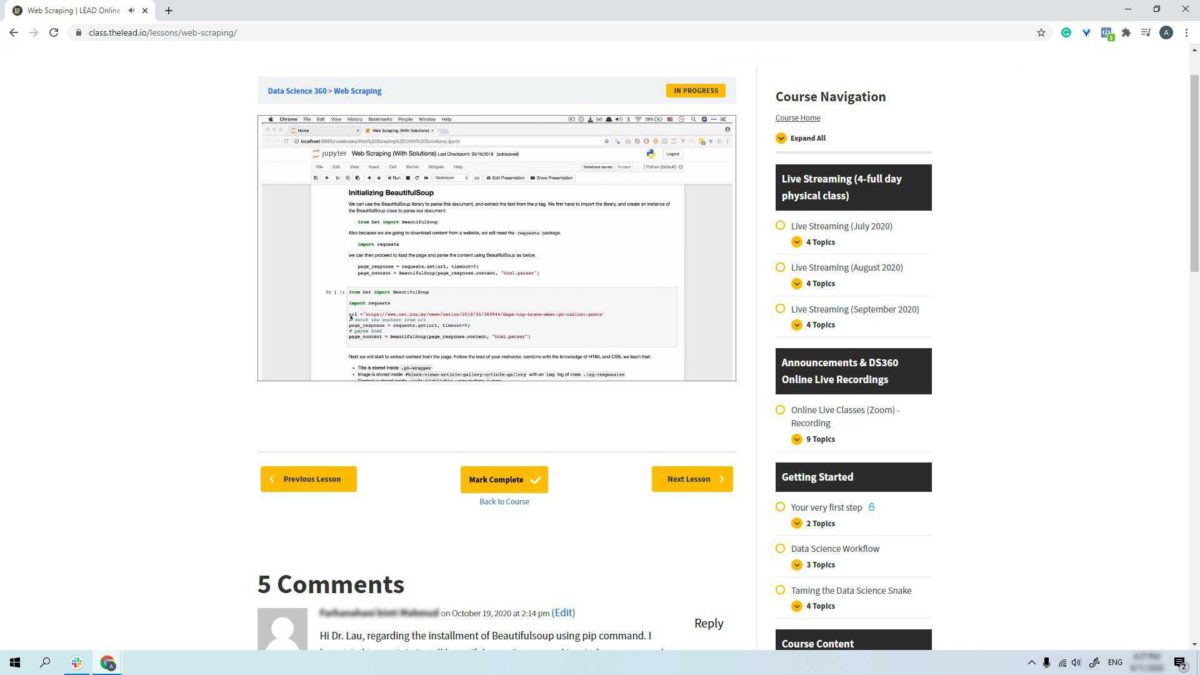
When you study independently, you’ll be able to:
- Progress through your studies at a digestible pace.
- Understand first hand which techniques work best and why.
- Learning relevant information that directly relates to your current needs.
However, because you are studying on your own, you may face challenges such as:
- Procrastination and Irregular study habits
- Frequent struggles to find and understand a problem.
Independent study usually requires lots of self-discipline, responsibility and good time management skills. But if you have the diligence to study, studying independently will greatly benefit you.
Natalie used a hybrid of both ways to advance in her skills in data science. When she is not taking online classes, Natalie goes out of her way to research the best data analysis techniques on Google and several online sources.
Because of her continuous education and willingness to learn, Natalie, who came from a medical-biological background, became competent in R, Python and SQL within a few years.
Why Should I Start Learning Data Science Now?
According to EY, a good 66% of global companies will move into digitization by 2022.
It may not be compulsory to have data science skillsets within the next 2 years. But to keep up with the fast-moving digital era today, working professionals need some knowledge in data science.
This is also happening in fields that aren’t technologically-based or business-centric as well. For example, in the pharmaceutical field, Artificial Intelligence (AI) is already being used by her company to accelerate drug creation by aiding the discovery of drug molecules.
![]()
Within the medical industry, AI is also being used to identify diseases like lung cancer; predict pandemic outbreaks, monitor health conditions and much more.
Data Science has also made great strides in the business side of the pharmaceutical field. On a personal level, Natalie finds that she is processing data much faster on R than on excel, bringing in the same if not better actionable insights.
On an industry level, data analysis tools for predictive models and sales forecast has helped Natalie’s consulting team find intriguing sales trends affected by COVID-19.
Based on their analysis, fears of a lock-down had skyrocketed sales of several kinds of drugs at the beginning of the year.
Afterwards, there was a surprisingly sharp decrease of hospitals and clinical visits, especially among patients with chronic diseases. This in turn decreases the sales of medications.
![]()
This is because hospitals and clinics are hotspots of the coronavirus. There is a high likelihood that you could come into contact with a positive coronavirus patient.
Natalie also noticed other trends that show the Malaysian medical field relying more on technology:
- Tele-medicine, which are medical consultations and pharmaceutical reports done through facetime, have become more common in 2020.
- Because of how accommodating tele-medicine is to doctors’ busy work schedules, there will be a hybrid of face-to-face appointments and tele-medicine in the near future.
- More people are getting online prescriptions and buying their medications online through e-commerce websites.
There is plenty of untapped potential in data science that is now being pursued in all industries. Picking up data science now will give you plenty of career opportunities and prepare you for the future.
Luckily, most nations including Malaysia is still very new to the field of data science, so there is time to learn.
Natalie advises the readers:
“Having data science skills will be useful regardless of what industry you are in. Start with analytics first then expand from there.”
Correcting Common Advice on Self-Learning
During the interview, Natalie shared tips on how she approached self-learning and addressed common beginner mistakes, expanding on common self-learning advice.
1- “Ask Other People for Help” → Don’t Fully Depend on Mentors
The usual go-to advice for self-learning is that if you have trouble, you should ask for help from someone more experienced, like a mentor or a senior employee.
But the most common problem with this is: most people can’t.
Mentoring and teaching someone involves high levels of commitment, so not many people won’t have the time to teach you properly. This is the main challenge Natalie experienced when she first started picking up R:
“[Your colleagues] might not be able to handhold or teach you as much as you want them to… But then I realized that I can be my own teacher.”
Asking people for help is only one way to solve a problem. So instead of relying on someone she could approach to for help, Natalie refocuses on how she can solve a problem.
With this change of mindset, Natalie actively searched for more helpful information from other places such as online resources and guidebooks. She says that if you want to progress quickly and get what you need for work, be willing to learn beyond what’s available to you.
If you do seek others for help, adjust your expectations. Don’t ask your colleagues for generalized solutions or demonstrations. Ask for quick, direct answers to a problem or useful life hacks that you can use to improve your learning.
2 – “Just Google it” – Find Reliable Sources of Learning To Self Learn Data Science.
During our interview, Natalie said that the best way to find a solution is to “just google it”.
Of course, it’s not as simple as that.
Asking someone to ‘just google it’ is like asking someone to search for a passage from a book in a library. Unless you know the subject well, it is going to be a struggling finding the right book and page that answers your question.
Similarly, Google is a search engine with a huge library of informative data. To find the solutions you need, you need to know the right sources of information to narrow down your search.

To build your own library of reliable resources, you can seek others for help. Ask them what resources they use to learn their programming skills. Are there any blogs, Youtube channels or social media channels they follow for information?
For beginners, Natalie recommends beginners to start their research with Stack Overflow, an online community platform where you can find answers to any questions on data science and find jobs.
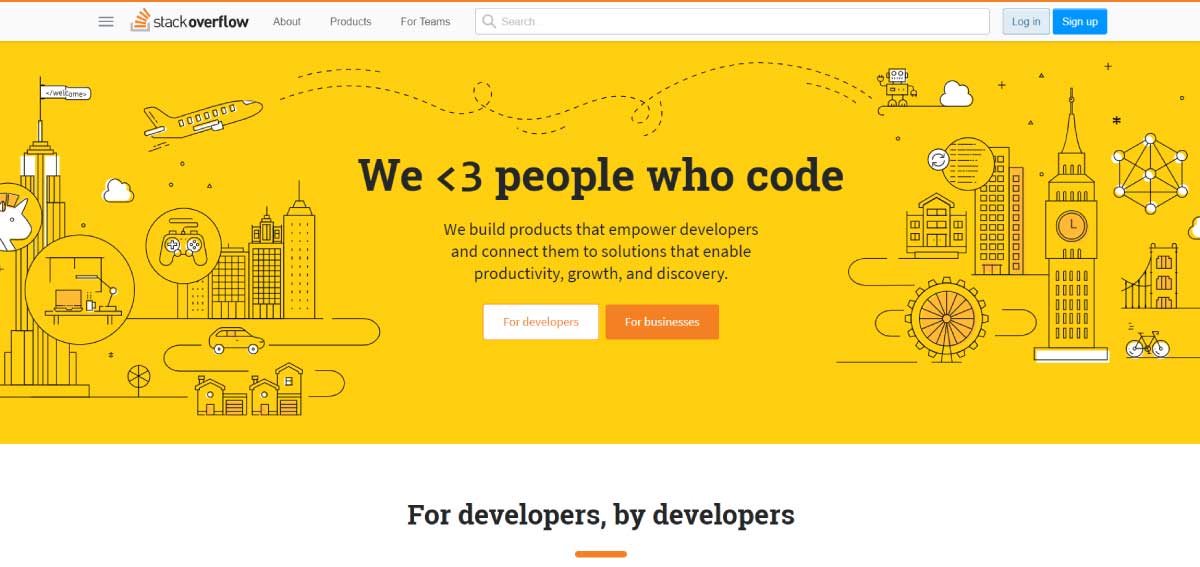
Natalie also recommends watching Youtube video tutorials as they demonstrate clearly step by step how to fulfill a task or resolve an issue.
Once you have your starting point, take the time to explore different mediums and channels that most appeals to your method of learning.
For example, some people are auditory learners and would learn best through podcasts and audio-books. Others are visual learners who learn best with info-graphics and charts.
3 – “Organize your Work Schedule” – Have Goal Posts and Take it One Step at a Time
One of the biggest challenges to self-learning is finding time and balance between career, studies and personal life.
On top of her masters and main job, Natalie also runs her own skincare business, Kopara, as a side hustle. Kopara is an online shop that sells locally-sourced golden jojoba oil which rejuvenates one’s face, hair and skin.

Natalie admits that she herself is still trying to find the right balance between juggling her work and studies, as she often works through the weekends to keep up with the workload.
To tackle the stress, she acknowledges that she can’t achieve anything immediately and she calmly manages her workload one step at a time.
Understand your goals and what is important.
Afterwards, you will be able to prioritize your work and delegate enough time between all that you desire to do.
It also helps to have a fulfilling goal or direction for each learning experience or side projects. Having goals will motivate you and reduce your stress from your work.
Despite often feeling tired out, Natalie enjoys having her side hustle. In fact, Natalie started Kopara because skincare was her form of relaxation after a busy workday.
As Natalie expresses:
“I believe in having a side hustle. I like exploring things in my career. So your talents and abilities are not limited to one set of things that you can do. It’s also much more, that you have to explore and find out for yourself.”
For those wanting to start their own business, Natalie advises them to find people with the right skills and attitude to form your team.
If you are hesitant to start your business, just go for it! You never know if you don’t try, don’t let things hold you back otherwise you regret.
Final thoughts on self learn data science
Self-learning is a suitable option for many people, but it requires the right attitude and approach. So long as you:
- Expand your learning options and consult various resources
- Be diligent and active learner in your own studies
- Find the purpose behind your learning and side projects
You will be able to pick up data science or any other subject on your own.

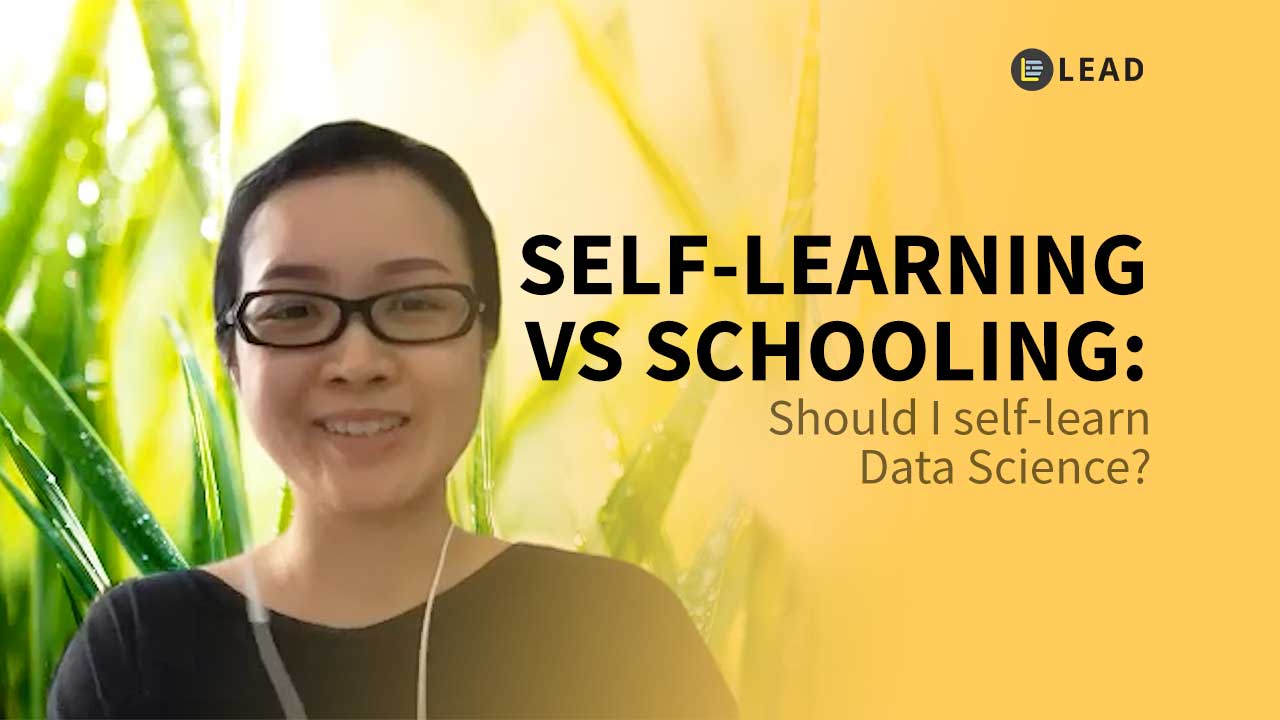

0 Comments